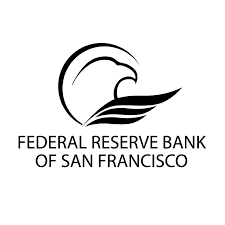The Value in Employee Experience: A Worker Financial Wellness Guide
A new resource from the Worker Financial Wellness Initiative, explores how companies can effectively learn from and act on the experience of their employees to make workforce investment decisions.
The Benefits Cliff Dilemma: Navigating Wage Increases and Public Benefits
Interviews with home care workers reveal how even well-intentioned raises can lead to benefits cliffs that cause workers to lose out on public benefits – putting them in a worse financial position overall.
Boosting Financial Health Benefits in the Small Business Workplace
Small businesses want to invest in their employees’ financial health, but affordable benefits are often out of reach. How can the marketplace close the benefits gap?
Helping Small Business Employers Deliver Financial Inclusion Benefits
Small businesses often struggle to provide the financial inclusion benefits offered by larger employers. What solutions could close the gap for millions of American workers? This article is EMERGE sponsored content presented by Principal Financial Group.
EMERGE Workplace 2023: Connecting to the Worker Financial Experience
Join us in Las Vegas after SHRM23 for this immersive half-day event, one that will transform your understanding of what workers go through beyond the four walls of their workplace and prepare you to deliver finhealth benefits that serve your workers effectively.
Workplace Financial Health Innovation: Exploring the Spectrum of Financial Guidance Solutions for Your Employees
Employees across industries are managing a wide range of financial health needs, and they are increasingly looking to their employer for support. As employers consider which financial guidance benefits to offer, they must consider a range of factors – including the makeup of their workforce, how the guidance is delivered, and cost structures – in order to identify the most high-impact solutions for their employees.
New Financial Health Data Finds that Despite a Majority of Workers in Low-wage Jobs Deemed Family Breadwinners, Only 13% are Considered Financially Healthy
New report offers first-ever glimpse into the financial health of workers in low-wage jobs revealing that many struggle with savings, insurance coverage, and paying for basic living expenses
Financial Health of Workers in Low-wage Jobs
Our findings suggest that investing in the financial health of workers in low-wage jobs – defined as earning up to $17 per hour in hourly wages or up to $35,360 per year in annual wages – can be an effective strategy for employers to ensure a stable and productive workforce.
Workplace Financial Health Innovation: Rolling Out Credit- and Debt-Related Benefits for Your Employees
As many employees struggle with unmanageable debt, employers can make a difference by providing credit- and debt-related financial wellness solutions. Here are fiscal, legal, and regulatory considerations for businesses to keep in mind as they develop offerings to help employees manage debt, build credit, and improve their financial health.
Medical Debt Is Hurting Your Employees – Here’s How To Help
As the debt crisis deepens, investing in the financial health of their workforces can yield big benefits for both employers and employees.
Financial Health Solutions: Promoting Employee Financial Health With a Mobile App
When offered digital financial wellness tools, which workers use them most? Explore how various employee groups engaged with a mobile app rolled out by University Federal Credit Union in Austin, Texas.
Using Data and Design To Increase Equity in Employee Financial Health
Data-driven understanding of employees’ needs can inform design and delivery of benefits programs that increase equity in employee financial health.
Workplace Financial Health Innovation: Rolling Out an Earned Wage Access Program for Your Employees
Employers, benefits platforms, regulators, and employees are paying more attention to earned wage access (EWA) products for their potential to improve employee financial health. Employers can maximize the positive outcomes of EWA products by minimizing associated fees, explaining the program mechanics to employees, and providing a complementary suite of financial resources.
Building Equitable Workforces
Learn how benefits and total rewards strategies can foster more equal financial health outcomes across your workforce.
Building Savings for Frontline Workers
Hear from experts and partners at BlackRock’s Emergency Savings Initiative (ESI) on successful approaches and lessons learned through delivering emergency savings solutions to frontline workers.
Living Wages: A Tool for Financial Health
Explore what it means to pay wages that support workers’ financial health and how companies can evaluate whether their wages are meeting workers’ needs.
Frontline Worker Perspectives
Hear directly from workers about actions employers can take to have a positive impact on workers’ financial health, job satisfaction, and engagement.
To Address the Financial Health Gender Gap, Let’s Fix the Care Economy
New survey data finds lack of affordable, reliable childcare holds women back from working.
Debt, The Workplace, and Employee Financial Health
Workplace financial wellness benefits have expanded over the last few years, yet many employees continue to face financial health struggles, particularly with debt.
Hear the Primal Scream of Workers: ESG and HCM Aren’t Enough
It’s time for employers to make environmental, social, and governance (ESG) and human capital management (HCM) projects tangible to workers, and to use these programs to address the real human needs in their workforce.
From Theory to Practice: 5 Tactics for Savings Engagement
Americans are facing inflation, ongoing pandemic-related disruptions, and limited government support. Here are five ways employers can help them save. Presented by: BlackRock's Emergency Savings Initiative
Helping Employees Manage Debt
A recent study of full-time workers reveals a high need for debt-related benefits, as well as gaps between those who need these benefits most and those who currently have access to them.
EMERGE Workplace 2022
This event will explore the latest trends, strategies, and solutions for employers seeking to improve the financial health of their teams.
Advancing Equity Through Worker Financial Health: A Framework for Employers
The Financial Health Network began conducting research in early 2021 to identify strategies employers can use to embed an equity lens into their benefits programs. HR leaders can use these early learnings to design and deliver programs and benefits that reduce financial health gaps among employees.
The Emerging Trends in Workplace Policy
Calling employers and HR leaders – as benefit laws and administrative rule-making policies shift amid the pandemic, you need an efficient way to keep ahead of key trends.
Global Financial Wellbeing Report: Disrupting Money Habits
Read the world’s first global financial wellbeing research from nudge global and uncover how employers can break cycles of financial exclusion.
Introducing the Employer FinHealth Toolkit
Learn more about the Employer FinHealth Toolkit and how the Financial Health Network can help your company design and implement a best-in-class employee financial health strategy. September 9, 2021 | 1:00 PM - 1:30 PM CT
Unpaid and Unprotected: How the Lack of Paid Leave for Medical and Caregiving Purposes Impacts Financial Health
Paid leave for medical and caregiving purposes can help workers cope in challenging times.
Designing for Whom? Lessons from a Coordinated Relief Effort to Reach Student Loan Borrowers Most in Need
In this article, we explore how FSL supported two interventions to identify and reach the most vulnerable student loan borrowers during the height of the pandemic.
New Financial Health Toolkit Helps Employers Improve Workforce Financial Health
New all-in-one guide gives HR leaders the power to diagnose needs and identify solutions, plus design engagement and measure impact of their financial health programs
Is the “Great Resignation” Really a Great Re-prioritization?
What we are seeing emerge in the labor market now is a competition for workers that feels fundamentally different. Those employers who don’t level up or those that pursue a return to a pre-pandemic mode of operation may find themselves on the losing side in the long run.
The Worker Financial Wellness Initiative – Making Workers’ Financial Security and Health a C-Suite Priority
The Worker Financial Wellness Initiative was designed to make workers' financial health a priority for executives. Learn why we believe America's largest companies should conduct a Worker Financial Wellness Assessment. JUST Capital and PayPal, in collaboration with the Financial Health Network and the Good Jobs Institute, have established a new initiative to make workers’ financial security and health a C-suite and investor priority. The organizations are calling on the CEOs of America’s largest companies to conduct a Worker Financial Wellness Assessment as a vital first step toward understanding the financial vulnerability of their workforce. Leading research shows that when workers are more financially secure, key business outcomes such as productivity, customer satisfaction, and employee turnover and engagement also improve.
Fintech as a Solution for Employee Financial Health: Findings from Five Exploratory Studies
We partnered with five fintechs – Brightside, HoneyBee, Manifest, MedPut, and Onward to explore how they’re used and their impact on employees’ financial lives.
Earned Wage Access and Direct-to-Consumer Advance Usage Trends
One in five families has less than two weeks of liquid savings. For the many U.S. workers living paycheck to paycheck, financial distress can occur in the time between earning and accessing wages.
Member-Exclusive Webinar: A Workplace FinHealth Conversation
Are you looking for a more substantive conversation about how to make an impact with workplace financial wellness programs? Watch this Member-exclusive session to hear how employers are delving into financial wellness through initiatives that deliver real benefits for their employees and their businesses.
EMERGE Workplace 2021
Watch videos from our April 2021 Workplace event to see leading experts and HR practitioners share their experiences designing finhealth solutions that address a wide range of employee needs and business goals.
3 Takeaways from EMERGE Workplace
The pandemic has made it clear that workplace benefits are evolving. As Harvard Business Review recently reported, the vast majority of leaders are planning to expand benefits as a result of the COVID-19. What should your organization be considering? We designed our inaugural EMERGE…



































